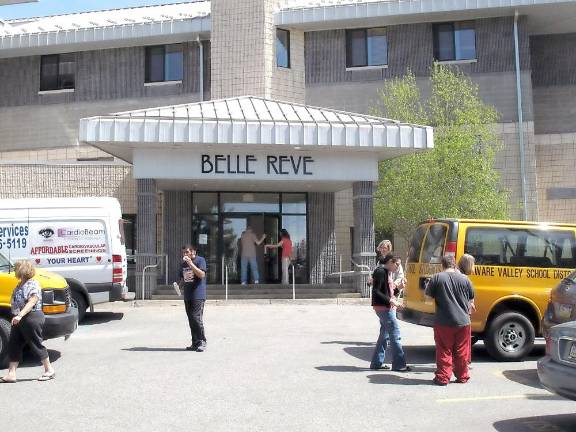13 of 14 Belle Reve dementia patients, all asymptomatic, have tested positive for COVID-19
Milford. Four employees at Belle Reve Senior Living Center have also tested positive for COVID-19. Over Easter weekend, a nursing home in Andover, N.J., was overwhelmed by the number of deaths from COVID-19, which is rampaging through nursing homes nationwide.

Thirteen of 14 residents in Belle Reve's dementia unit -- all asymptomatic -- have tested positive for COVID-19.
The one resident who did not test positive is both secured and isolated from the rest of the community, said Griechen Vakiener, the corporate marketing representative at Belle Reve Senior Living Center, a private nursing home in Milford.
Belle Reve's director is Michael Perlock, who referred all questions to Vakiener.
Vakiener said if any of the dementia patients showed outright symptoms, Belle Reve would first reach out to the patient's doctor or a hospital for further instructions.
She said each resident is checked for fever and respiratory distress twice a day.
In addition to the residents, four Belle Reve employees have tested positive, Vakiener said.
She said Belle Reve employees began wearing face masks on March 26, in advance of guidelines issued by the U.S. Centers for Disease Control (CDC) The nursing home's policy since early in March has been that if any employees were sick, they were not allowed to come to work, she said.
"We have the necessary staff and PPE (personal protective equipment) so that we're able to provide staff with necessary protection," said Vakiener. "They've all been trained. We have attempted to be proactive to prepare communities for the possibility of a resident testing positive. The care and safety of our residents and staff has always been our highest priority. We have worked tirelessly to meet these standards. Everyone is giving 100 percent to take care of the residents at this scary time."
The Pennsylvania Department of Health is reporting 845 deaths in long-term care facilities across the commonwealth.
Pike County has confirmed 317 cases of COVID-19 and 12 deaths from the illness, according to the department of health.
In nearby Andover, in Sussex County, N.J., a nursing home was overwhelmed by COVID-19 deaths over Easter weekend. Following an anonymous tip, police found 17 bodies stuffed in the morgue at Andover Subacute and Rehabilitation Center. The morgue was designed to hold only four bodies. The bodies were among 68 deaths linked to Andover Subacute, including residents and two nurses.
The coronavirus has spread through nursing homes around the country with a speed and fury often compared to wildfire. An early center of the pandemic was the Life Care Center in Washington State. Thirty seven deaths were connected to that nursing home.
Please see related story, "Police find 17 bodies piled up in Andover nursing home morgue," on pages 6 and 7.
"We have the necessary staff and PPE (personal protective equipment) so that we're able to provide staff with necessary protection.We have worked tirelessly to meet these standards. Everyone is giving 100 percent to take care of the residents at this scary time." --Griechen Vakiener